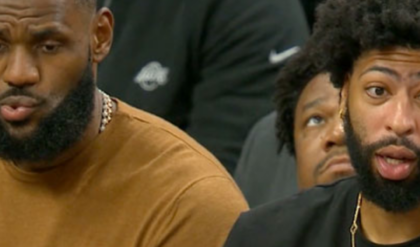LSU women’s basketball coach Kim Mulkey’s approach to star players Angel Reese and Hailey Van Lith’s potential WNBA Draft decisions highlights the evolving landscape of collegiate sports and the significance of athlete autonomy in navigating career choices.
/bnn/media/media_files/b1117ce4e29b56c140785e87580cd46c3895335f44d7167634e7df9171112493.jpg)
In a notable move reflecting the evolving landscape of collegiate sports, LSU women’s basketball head coach Kim Mulkey has taken a stand of non-intervention regarding the potential WNBA Draft decisions of star players Angel Reese and Hailey Van Lith.
Both athletes, who transferred to LSU with clear plans for their tenure, now face pivotal career decisions owing to their high draft prospects and lucrative Name, Image, and Likeness (NIL) opportunities.
Empowering Athlete Autonomy
Mulkey’s approach emphasizes the importance of personal choice in the careers of Reese and Van Lith.
This stance is particularly significant considering the notable NIL earnings of both players; Reese stands as the 7th most profitable athlete in all of collegiate sports and the top earner in women’s college basketball with an annual income of $1.7 million, while Van Lith earns $563K annually.
Their success off the court, combined with their projected top 10 draft picks, puts them at a crossroads that could shape their professional futures.
A Pivotal Season Ahead
The 2023-24 season presents a critical juncture for both Reese and Van Lith. Reese, a transfer from Maryland, has quickly risen to prominence, ranking sixth overall in ESPN’s most recent mock draft to the Washington Mystics. Van Lith, hailing from Louisville, similarly faces high expectations.
Their performances have not only led to individual accolades but have also significantly contributed to LSU’s success on the court. The decision to enter the draft or remain at LSU could hinge on numerous factors, including the team’s performance in the upcoming SEC tournament and March Madness.
Implications for LSU and Beyond
The decisions of Reese and Van Lith carry weight not only for their personal careers but also for the LSU program and the landscape of women’s college basketball. Mulkey’s respect for their autonomy underscores a broader recognition of athletes as individuals with careers that extend beyond collegiate sports.
This approach may set a precedent for how coaches and programs navigate the intertwined paths of college athletics, professional opportunities, and NIL earnings.
As the 2023-24 season unfolds, the choices made by Reese and Van Lith will undoubtedly be watched closely, not only for their immediate impact on LSU’s prospects but also for their potential to influence the future of athlete decision-making in the collegiate sports arena.





